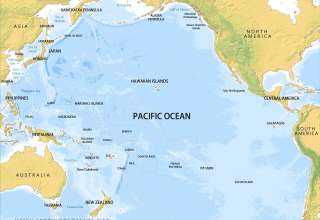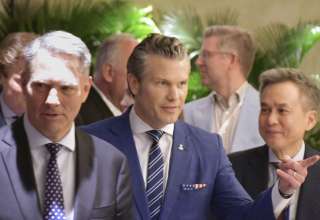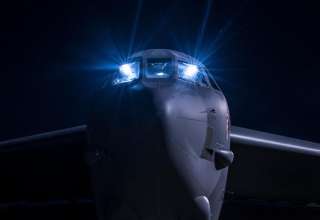A Commentary…
By Brian Boyd, October 2022
This is the third of a three part series that looks into the current geo-politics and what it means for Australia.
ARMS RACE
It is legitimate for any country to be concerned about economic influences that impact negatively on their respective national economies, be it from China or from any other country.
It is clear why the US is responding to the exponential growth of the Chinese economy and its impact on the international economic system, a system the US built after World War II.
But it is wrong to propose that these economic tensions can justify the accelerating global arms race, with actual conflict being predicted to occur in the not so distant future!
Back in late June Australia’s Foreign Minister Penny Wong met her Malaysian counterpart. It was reported that Malaysia is among several Southeast Asian
nations worried about recent defence agreements between Australia, the US and the UK, which are being seen as stoking up the arms race between the US and China.
There are often one-sided stories about economic coercion, the weaponising of trade, exploitation and cyber spying. But these activities have been common practice and carried out by all great powers and nation states, forever.
Australia is entitled to critically analyse China’s economic expansion globally and how it could be impacting negatively on it and other countries. But Australia could play a more positive role in dealing with this strategic, economically based competition between the superpowers and other economic power blocs.
It needs to be recognised, from the start, that the fundamental shift in power reshaping the Indo-Pacific has at its roots an overarching, economic component. Subsequently there is a broader desire to avoid domination by any single power. Australia is yet to embrace this approach.
REAL DEFENCE-TRANSPARENCY
Australia should have its own sovereign defence policy and defence force capability that must be effective enough to defend our island continent from any attack and dispel any nation state from considering such an offensive. This task is reasonable and a matter of course for all nation states.
Defensive, armed neutrality is an honourable course of action.
At a meeting in Washington in mid-July Defence Minister Marles said the Albanese Government was determined to ”take greater responsibility for its own security”, adding: “We completely accept the right of any country to modernise its military and China has that right as well.
“But a build-up of that scale needs to happen in a way that is transparent and what we are seeing with China right now is opaque”.
These are fine sentiments, if they are ‘fair dinkum’.
It is no secret that the US is also accelerating its military build-up, especially in the area of supersonic weaponry much of it based on artificial intelligence applications. Marles has received secret briefings concerning Australia’s role in these US undertakings and the role of places like Pine Gap, Woomera and Salisbury and at other secret locations on Australian soil. Much of this activity also “opaque” in nature.
Let’s put aside the headline grabbing announcement by the previous Morrison government in 2021 that Australia will be seeking nuclear powered submarines through the AUKUS agreement.
In 2022 we learn that the AUKUS is in fact ‘far bigger and more important’ than just supplying nuclear powered submarines, delivery more than two decades away! We are now told that this agreement will be more far reaching, in fact a central platform for more cooperation and sharing of hi-tech knowledge for the Australian Defence Force. It will be a vehicle for sharing a wider range of sensitive defence equipment from the US.
There are specific references to putting Tomahawk missiles into Australia’s existing submarines, examining upgrading weapons for Australia’s offshore patrol vessels, receiving world-best military applications of quantum computing, artificial intelligence, machine learning and enhanced cyber, telecommunications and nanotechnologies, all from the US.
On the one hand defence Minister Marles claims: “We want a defence Force which ensures that we are taken seriously as a nation and therefore creates the greatest strategic space for Australia. We need to be looking at sovereign capability. We need to protect the country, to defend the continent and defend our key interests. We are a trading nation and our maritime approaches and our sea lanes are critical”. Sentiments Australians will identify with.
Yet Marles goes on to downplay any broader binding role of AUKUS saying: “AUKUS is not a security alliance…that’s not what it is… sharing capability and building technology-it doesn’t seek to do more than that… and everything this government does, it will do from the perspective of Australia’s national interest and its national sovereignty”.
In a speech in the US Marles in July seemed to dilute the concept of a ‘national sovereign’ approach. He offered up a revamped concept for Australian and US military forces cooperation. He not only supported the concepts of “interoperable” and “interchangeable” between the two militaries but added they could also “operate seamlessly together, at speed”. This integration ‘framework‘ surely undermines the parameters of any independent self-defence concept, based on the focus of defending our island continent.
When asked by the media that AUKUS would also mean an expansion of the US bases at pine Gap and North West Cape, the Australian defence Minister declined to comment.
At the end of August there is a little publicity that the Australian government is looking at expanding its US built F-35 stealth fighter fleet and buying US B-21 Stealth bombers, as well as updating its military helicopter squadrons with US Black Hawk helicopters. Subsequently a private sector defence advisory think tank revealed in a little noted media report buried on page 29, that during the Nancy Pelosi visit to Taiwan the US stationed within Australia 25% of the US’s entire strategic B2 stealth bomber fleet during the “heightened tensions in the Taiwan Strait”!
There was no transparency or comments from defence Minister Marles to this report.
[Extra note: back in 2001, immediately after the September 11 terror attacks in the US, the entire military jet fleet of the Australian Air Force was sent to the US military base at the Diego Garcia for the use by the US, leaving Australia without our own frontline defence.]Simply this rhetoric concerning ‘interchangeability’ should trigger concern about Australia’s ability to have defence policy flexibility and autonomy in the age of great power rivalry. It is also now widely speculated that the proposed new nuclear powered submarines for Australia, will actually only be a subset of the US Navy operations in the South China Sea.
Concern over global military build-up activities should be across the board.
US AND CHINA BOTH HAVE MILITARY SECRETS!
The previous Australian defence Minister Peter Dutton made much of his access to high-level security briefings through the government’s national security committee. The current Australian defence Minister Richard Marles has also made references to his access to classified material, he now receives via his portfolio.’ Transparency’ is not a one-way street, especially in relation to the Australian public. We are entitled to be made aware of real and discernible security and military threats affecting our country.
Australians are entitled to ask: What does the government know that we don’t?
Australia does not need to be an ongoing adjunct to the US’s global military posture, especially if it’s based on an agenda to take sides in great power rivalry, over economic ‘spheres of influence’.
Australia, with a genuine, sovereign defence capability, could take an armed neutral stance that would be more useful in working with other countries to insist ‘hot’ conflict be avoided and peace in our region be maintained.
Such a move would definitely gain more international respect, especially if Australia indicates that it will not be blindly following the US into another manufactured conflict.
After decades of diabolical wars in places like Vietnam, Afghanistan, Iraq and Syria the world is clearly still not a safe place. Australian’s are entitled, to query and debate publicly, the worthiness of continuing to be taken for granted as a key part of the American war machine. The Australian public deserve to know the full extent of the military and security arrangements that Australia has with the US and be allowed to, via our political processes, to consider their value to our national interests going forward.
China’s economic adventurism does impact on aspects of Australia’s national interests. The challenge is for Australia to pursue middle-power diplomatic initiatives, with a key emphasis on laying down pragmatic understandings on how to avoid war and promote fair trade, through mutual respect.
We need to promote the idea of an inclusive international system that is based on common sense, which prevents economic competition from developing into open conflict. As a responsible middle- power Australia could intercede diplomatically in the management of great power relations, in league with other like-minded nations. By redesigning Australia’s objective as “strategic equilibrium”, Foreign Minister Wong has opened up the opportunity to demand that the US and China reduce the risk of conflict and increase cooperation on worldwide issues.
It must be recognised that to have this public discourse will have its difficulties. The media in Australia is monopolised by American corporations like News Corp, Facebook and Twitter. They are entrenched in how our news and information is disseminated.
INDEPENDENT STANCE
Regardless, self-respect, achieving genuine national sovereignty and developing a recognisable independent stance in the global community, needs pursuing. The evolving geopolitical tensions and competition amongst the great powers is not going to go away.
Australian foreign minister Penny Wong, in the lead up to the Pacific Islands Forum in June, made the observation that China will be ‘continuing to seek greater influence in the Pacific’, adding that: “Things will not go back to where they were…”. Minister Wong suggested the Pacific Island countries, ‘if unified, could shape the way [they] engaged with the aspiring superpower’.
Clearly not a call to arms. Yet our pro-war posture remained stubbornly in place.
Australia will only be taken seriously by most of our South East Asian neighbours if we recast our diplomacy separate from the US economic agenda. There has to be a national conversation. We need a foreign policy we can call our own.
Back in May Fiji PM Bainimarama said: “The Pacific needs genuine partners, not superpowers that are super-focused on power”.
It must be recognised that for Australia to claim a more progressive status globally, in promoting arms-control for example, it will have to examine its US alliance with a far more critical eye.
The current federal government will have to face up to the pro-US war hawk establishment, which will insist that any consideration of not going ‘all the way the USA’, will be deemed as some kind of treachery. For example the recent “fiercely independent” comments from New Zealand had one commentator claiming that that country is “closer to becoming a client state of China”.
The same commentator insisted that Australian Prime Minister Anthony Albanese had the task of “nudging the Kiwis back into the fold” and added: “If Howard was Bush’s deputy sheriff, Albanese must be Biden’s kelpie”!
Such a lack of respect for Australia is sickening.
Interestingly there has been some interesting public comment emerging from the so-called “Canberra bubble”. Some elements of the ‘Australian foreign policy and defence elite-doublespeak for spooks and war hawks’, are now expressing some concern about US ‘reliability, in our region. This concern had defence Minister Marles host in August discussions where views were expressed that Australia “should adjust” its thinking in light of the growing perception of “waning American influence”, “political instability” and drift to “isolationism”.
The discussion went on to place these concerns in the context of Australia’s “strategic circumstances”, including the pressure that Australia should be part of “going to war with China” over Taiwan, in the foreseeable future. In turn the key issue of the effectiveness of the nation’s capacity requirements, force disposition, support resources and national infrastructure required to be involved in such a war, was raised!
One participant in the discussion expressed concern over America’s mood to end its legacy of “forever wars”, which could lead to the danger of the US “losing its will to uphold the global order”. The report on the discussion went on to suggest that some within the ‘political class’ in Canberra are struggling to maintain a clear view of Australia’s ongoing role as a US ally.
More than ever Australia should have its own viable sovereign defence policy and defence structure. This is a given in modern world affairs.
Australia needs to define for itself a progressive, pragmatic role in fighting for peace and arguing that war and conflict, is not the answer. That peace in itself is in our country’s national interest and that a more benign, multipolar Indo-Pacific order is a worthwhile aim.
A major starting point for the Australian people is that they are entitled to be more aware of the economic basis of ‘spheres of influence’ competition underscoring the current ‘war talk’.
***Recommended reading:
“Our exceptional friend-Australia’s fatal alliance with the US”, Emma Shortis. Hardie Grant books, 2021.
“Dangerous Allies”, Malcolm Fraser, 2014.






